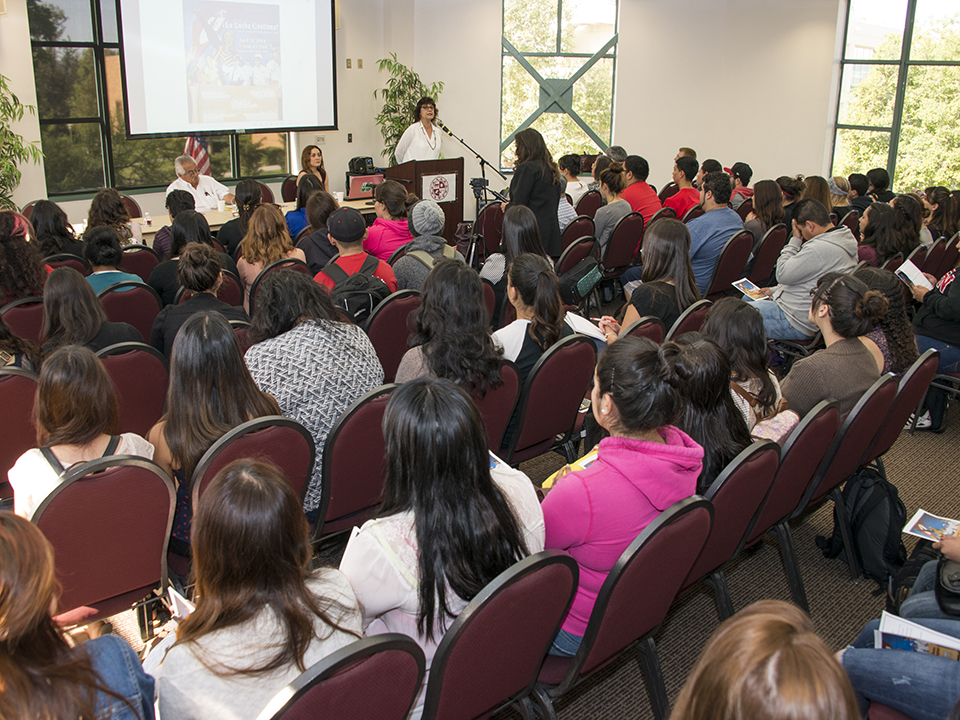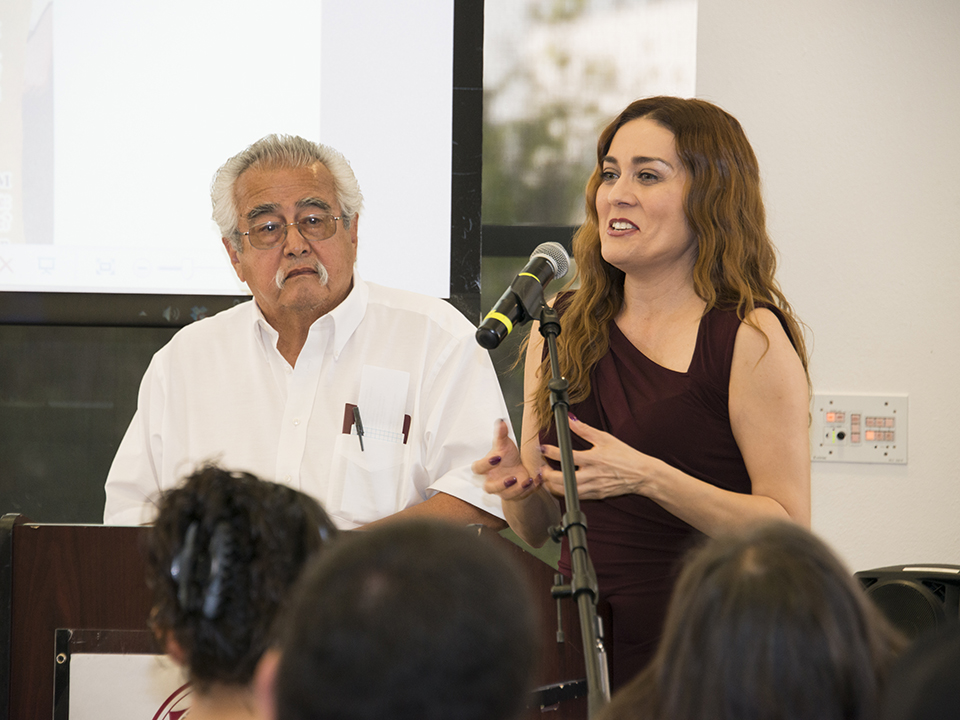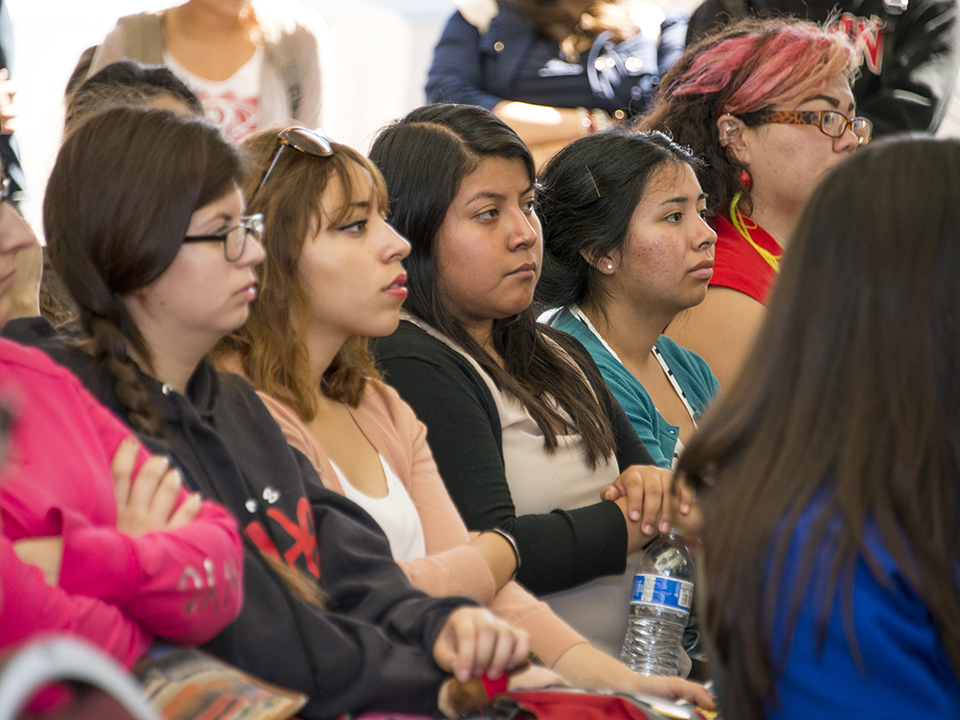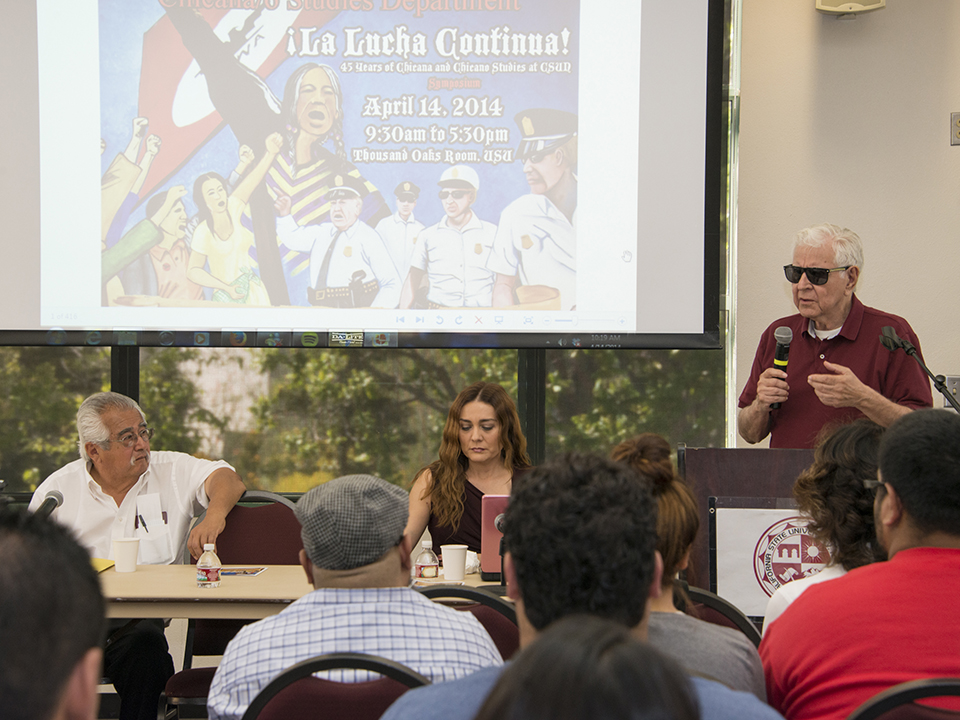45th Anniversary for Chicana/o studies: La Lucha Continua
Standing-room only crowds were plentiful during the different sessions taking place throughout the April 14 event to celebrate the 45th anniversary of Chicana/o studies at California State University, Northridge. Titled, La Lucha Continua, the day marked a time to reflect on how far the program has come since its inception in 1969, and took a look at where it is going.
“It’s really important to celebrate the 45th year of our department, especially in this time period when there are these attacks against ethnic studies. That’s why we called it La Lucha Continua, the struggle continues,’” said Denise Sandoval, a professor of Chicana/o studies who was also the event’s organizer. “Knowing this legacy of what we’ve meant to CSUN, we have to continue to fight for more access for working-class students. We’re celebrating it, but also thinking — Where are we moving in the future? How do we continue these themes of activism, social justice? We’re not just being engaged here, but in the community as well.”
One of the department’s founders, Rudy Acuña, delivered the keynote address, encouraging students to speak out against injustice. With ethnic studies being called into question on some campuses in the Southwest, this anniversary event also was a showcase for how departments like Chicana/o studies have an important place alongside the other degrees offered at CSUN. One symposium brought together various alumni who graduated with Chicana/o studies degrees, and each talked about how they put that degree to work.
“A lot of them were double majors, but what Chicano studies gave them was an understanding of their identity and the issues that our communities face,” Sandoval said. “All of them chose careers and professions that were in the community in service.
“That panel, they shared what it was like to be a student, and the struggles that they faced and how Chicano Studies changed the directions of their lives. As they shared the work that they do — how it still connects to what they learned here at CSUN in Chicano Studies — it was very empowering.”
The closing of the event was a look forward for the department, giving attendees a snapshot at how Chicana/o studies will grow. At the core of the department, students are encouraged to explore Latino heritage and be advocates and voices for those who might not be able to act on their own behalf. There are also joint projects in the works with different ethnic studies departments.
“We always talk about how we want to change the world,” Sandoval said. “Changing the world, of course, is a big dream, but there are many worlds, many communities. We need visionaries, we need workers, we need activists, we need critical thinkers, we need writers. We need to work collaboratively.”





 experience
experience